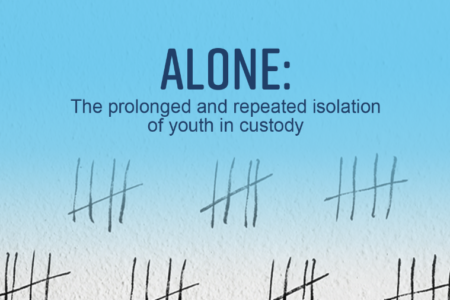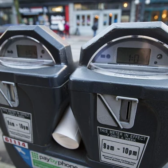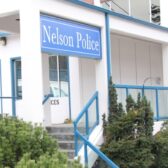B.C. Vaccine Card makes its presence known in Heritage City
Although the people on the frontlines in the Nelson service industry have braced and borne the burden of the dirty work in enforcing the B.C. Vaccine Card since it was required earlier this month, the transition so far has been without incident, noted the city’s chamber executive director.
Tom Thomson said the Nelson and District Chamber of Commerce was apprehensive prior to Sept. 13 when the controversial card — necessary for anyone who wanted to attend a concert, sporting event, movie, restaurant, nightclub, casino or fitness class — was expected to provide a flashpoint over vaccinations for COVID-19 and its variants.
Within the first week of the B.C. Vaccine Card implementation in Nelson many businesses indicated that their business was down, Thomson said — likely because even the vaccinated hadn’t had a chance to download the QR code app — but there was no trouble reported and no “real problems” arose.
“We alerted the (Nelson Police Department) as to possible push back based on some social media posts in advance of the passport,” he explained.
The NPD’s chief constable stated two weeks ago that arrests would be made of those people who flouted the provincial health officer’s (PHO) new regulations, including taking issue at restaurants enforcing the B.C. Vaccine Card requirement.
During a public health emergency under the Public Health Act, the PHO can make orders as needed. Some orders can be enforced by police or other compliance and enforcement officials, and people can be fined, as a result.
“We did have some concerns for small businesses having to bear the brunt of the public backlash without any additional support for businesses such as training, cash to assist with hiring a door person or security,” Thomson said.
“That being said, businesses have complied with every order that has been brought down in the past 18 months, and small restaurants, pubs, etc. have had to pivot on a dime, sometimes with less than 24 hours notice.”
The “vast majority” of the Nelson food and beverage locations have enforced the restrictions, with some adhering to the provincial health officer orders who previously hinted that they would not, said Thomson.
Part of the key to gaining compliance was a loophole in the restrictions, allowing business to be extended to non-vaccinated people if there was no offer of table service, or the establishment gave up their alcohol sales to comply as a fast food or coffee shop-style facility.
“That was something that the government changed from their original plan to when it was implemented, so it really allowed (some businesses that claimed they were) not going to enforce, to fall in line,” Thomson explained.
As of Sept. 13, people need to be at least partially vaccinated with one needle. By Oct. 24, people will need to have been fully vaccinated with a second needle.
The move has worked, noted Ravi Kahlon, B.C. Minister of Jobs, Economic Recovery and Innovation.
“Since announcing the B.C. Vaccine Card, more than one million people have registered for their card,” he said.
He felt the B.C. Vaccine Card will help increase vaccinations, while boosting the confidence of people to continue supporting their local businesses. Kahlon estimated more than 78.8 per cent of eligible British Columbians are now fully vaccinated.
The Nelson chamber will continue to work for local business on all fronts, said Thomson, but he hoped everyone would continue to comply by the orders to succeed and remain in business.
“It hasn’t been easy for some sectors, including food and beverage, tourism, arts, gyms and other personal services, but businesses have been resilient and done what is required of them even if they are opposed,” he noted. “It would be great to see all businesses back to normal levels of business without a lot of businesses having to close.”
He pointed out that it was the chamber network and other business organizations that have been primarily responsible — through advocacy efforts — for helping government come up with business supports during the pandemic.
“We are continuing to advocate for the continuation of the wage subsidy program, as well as the rent assistance for small businesses,” Thomson said. “We also believe it is time to reduce or eliminate the CERB benefit that allowed people to stay home and out of the workforce. There is a big labour problem throughout our region, B.C. and other parts of the country.”
A meal out
From the Order of the provincial health officer regarding food and liquor serving premises:
For certainty, this Order (prohibition for non-vaccinated) is not directed at:
• food or liquor serving premises which are located in airports or at BC Ferries terminals or on BC ferries;
• designated onsite liquor retail and dedicated sampling room areas without seating attached to a liquor manufacturing facility;
• a person providing or collecting take-out food;
• a person who delivers to or receives food in a place other than a restaurant;
• non-licensed premises with only counter food service where the food is either ordered and collected from a counter;
• or is ordered at a counter and delivered to the customer at a table or other place;
• non-licensed self-serve food areas;
• food courts;
• food trucks;
• drive-through;
• take out or quick service food services;
• hospitals;
• licensed care facilities;
• assisted living residences;
• independent living facilities;
• correctional facilities;
• industrial camps;
• public or independent schools;
• post-secondary institutions;
• workplace cafeterias;
• cafeterias for resident students attending educational institutions; and
• or other cafeterias that serve food or liquor to residents, rather than to the general public.
Source: Order of the Provincial Health Officer, Sept. 10


























